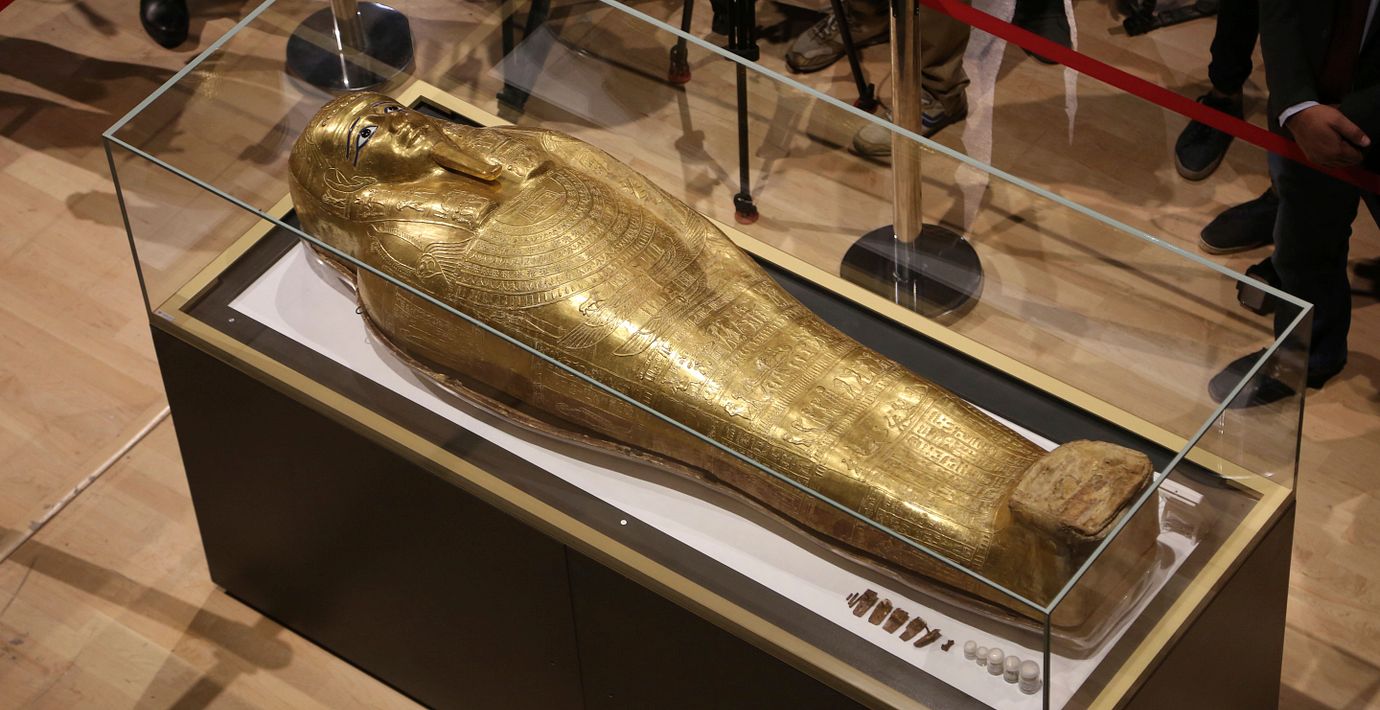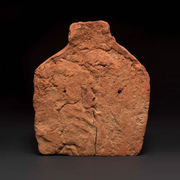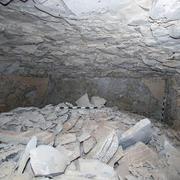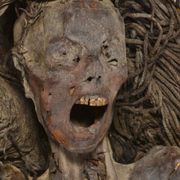
Museernas vädjan: ”Kalla dem inte för mumier”
Flera brittiska museer har valt att byta namn på egyptiska reliker. Det rapporterar CNN.
I stället för att referera till forntida mänskliga kvarlevor som ”mumier” förordar museerna i stället termen ”mumifierad person”, alternativt att man använder sig av personens namn. Museerna vill på så sätt distansera kvarlevorna från populärkulturella skildringar av mumier som ”övernaturliga monster” som ofta är förbundna med antika förbannelser.
– På det här sättet kan vi uppmuntra besökarna att tänka på den individ som en gång levde, säger Adam Goldwater på Great North Museum till CNN.
bakgrund
Sakkara
Wikipedia (en)
Saqqara (Arabic: سقارة, Egyptian Arabic pronunciation: [sɑʔːɑːɾɑ]), also spelled Sakkara or Saccara in English , is an Egyptian village in the markaz (county) of Badrashin in the Giza Governorate, that contains ancient burial grounds of Egyptian royalty, serving as the necropolis for the ancient Egyptian capital, Memphis. Saqqara contains numerous pyramids, including the Pyramid of Djoser, sometimes referred to as the Step Tomb, and a number of mastaba tombs. Located some 30 km (19 mi) south of modern-day Cairo, Saqqara covers an area of around 7 by 1.5 km (4.3 by 0.9 mi).
Saqqara contains the oldest complete stone building complex known in history, the Pyramid of Djoser, built during the Third Dynasty. Another sixteen Egyptian kings built pyramids at Saqqara, which are now in various states of preservation. High officials added private funeral monuments to this necropolis during the entire Pharaonic period. It remained an important complex for non-royal burials and cult ceremonies for more than 3000 years, well into Ptolemaic and Roman times.
North of the Saqqara site lies the Abusir pyramid complex, and to its south lies the Dahshur pyramid complex, and together with the Giza Pyramid complex to the far north comprise the Pyramid Fields of Memphis, or the Memphite Necropolis, which was designated as a World Heritage Site by UNESCO in 1979.Some scholars believe that the name Saqqara is not derived from the ancient Egyptian funerary deity, Sokar, but from a local Berber tribe called the Beni Saqqar, despite the fact that a tribe of this name is not documented anywhere. Medieval authors also refer to the village as Ard as-Sadr (Arabic: ارض السدر, lit. 'land of the buckthorn').
Omni är politiskt obundna och oberoende. Vi strävar efter att ge fler perspektiv på nyheterna. Har du frågor eller synpunkter kring vår rapportering? Kontakta redaktionen


